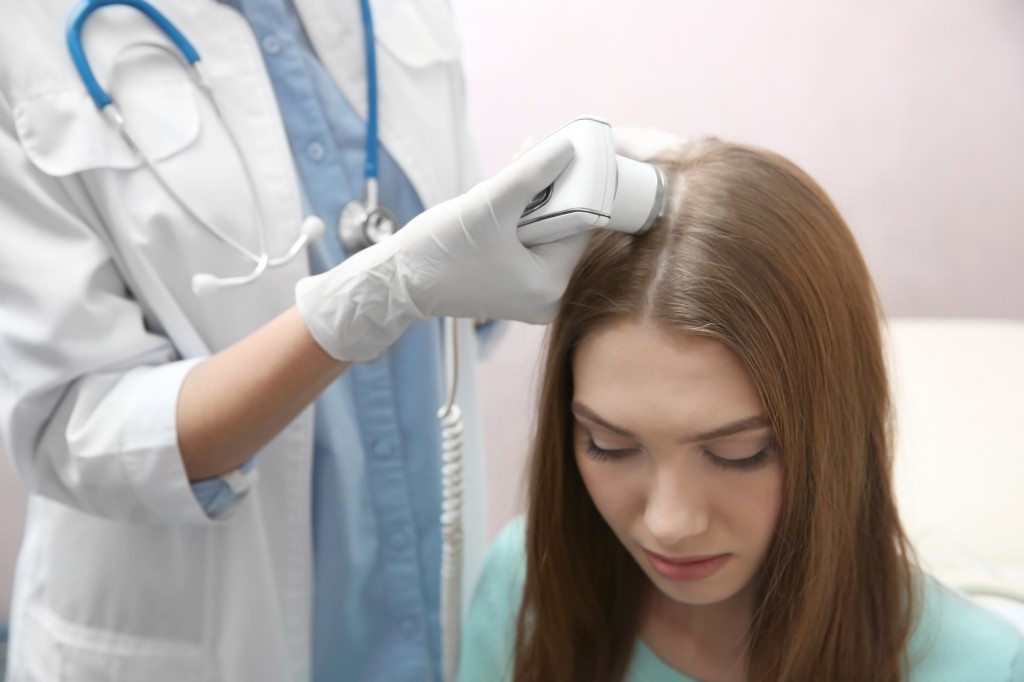Hair and scalp problems are so common now that there’s a field of study dealing with them and a specialist who treats all ailments connected with hair and the skin that it grows out of. Trychology, or the study of hair and hair-related diseases, is the specialty of a hair doctor – a trichologist. Who the trichologists actually are? What do they do? Is the appointment worth making?
Trichology is not a complicated and senseless name for this field of study, considering the fact that trichos means hair in Greek. The name of the profession has been derived from the noun – a trichologist. What areas, or to be more precise, what hair and scalp problems trichologists deal with exactly and what trichology refers to?
- All kinds of hair loss (ranging from the genetic and hormonal hair loss to mild, seasonal conditions).
- Disturbed hair growth and development.
- Mechanical hair damage and chemical processing.
- Seborrhea, psoriasis, dandruff and all scalp diseases.
- Extreme hair dryness.
- Strongly dehydrated, sensitive scalp.
- Blocked hair growth.
- Premature graying.
- Extreme hair splitting.
Trychology doesn’t base its knowledge only on the inventions of medicine or the knowledge of human body, hair structure and growth cycle. A trichologist also makes use of other fields such as hairstyling, cosmetology, dermatology, physiotherapy and even psychology (struggling with depression and psycho-somatic disorders, patients lose excessive amount of hair and often unconsciously pull hair out).
What trichologists do?
A trichologist must carry out a thorough analysis of the condition, appearance and health of our hair – from the bulbs to the ends. S/he is able to tell lots about the state of hair and detect many hair and scalp-related diseases early enough. The trichologist is able to identify the hair porosity type which is quite crucial for hair care, to be more precise – for the choice of the suited hair care and products.
The trichologist is able to diagnose our general health – experts can diagnose depression and numerous other psychological disorders and neurosis – such disorders are often the direct or indirect cause of hair loss.
What a trichologist consultation looks like?
During the first visit, the trichologist establishes a special information sheet for you (actually, for your hair) with enclosed questions that concern your hair, the hair care routine, potential diseases, medication, lifestyle. It is like a background survey for your hair.
When it’s your first visit, the trichologist may ask about everything – your life situation, emotional state, past diseases, medication you take, hereditary diseases, possible contraceptive therapy and hormone balance, as well as – most of all – your hair care routine: how and what you use for washing, styling, caring for your hair, etc.
A trichologist consultation – how can you prepare yourself?
To get the most efficient visit and the most reliable test results – don’t wash your hair before the appointment for (at least) 24 hours. Thanks to that, the trichologist is able to evaluate the functioning of the sebaceous glands in skin and the degree of the dermal keratinisation. Hair should be free of all kinds of styling products, therefore before the trichologist consultation, never use hair sprays, lotions, straightening emulsions, mousses or gels.
The trichologist consultation – what should you take with you?
You can make the trichologist’s job much easier and speed up the analysis of scalp and hair by bringing the results of the blood tests. In this way, the trichologist can quickly diagnose the state of your hair and scalp. What tests should you go for?
- General check-up – morphology, vitamin B12, ferritin, level of electrolytes, iron, copper, zinc.
- Hormonal blood tests – if you’re having any hormonal complications or e.g. take contraceptives, checking the hormone levels makes a good choice.
- Thyroid tests – if you’re having problems with thyroid, test the TSH, FT3, FT4 and thyroid antibodies.
The trichologist consultation – what a trichoscopy looks like
A trichoscopy is the main trichologist test – an imaging examination of skin and hair with camera of a 200 magnification. Thanks to the device, the trichologist identifies the state of the scalp, the condition of hair follicles, blood vessels and hair porosity – the size of gaps in the external keratin hair cuticle coat. As a result, the doctor gives a diagnosis and tailors the type of treatments and medication to your hair problem.
Trichologist – opinions: worthwhile?
A trichologist doesn’t deal only with serious hair and scalp problems – you can give it a go when you feel the state of your hairdo is drastically worsening. The specialist helps you identify hair porosity and choose the right hair care routine and products.
Many women and men, who’ve used the trichologist services, give this therapy great reviews, saying that the consultation let them diagnose other conditions e.g. hormonal imbalance. The key thing is that you don’t hold back the truth – the successful diagnosis may depend on your answers.



Leave a Reply